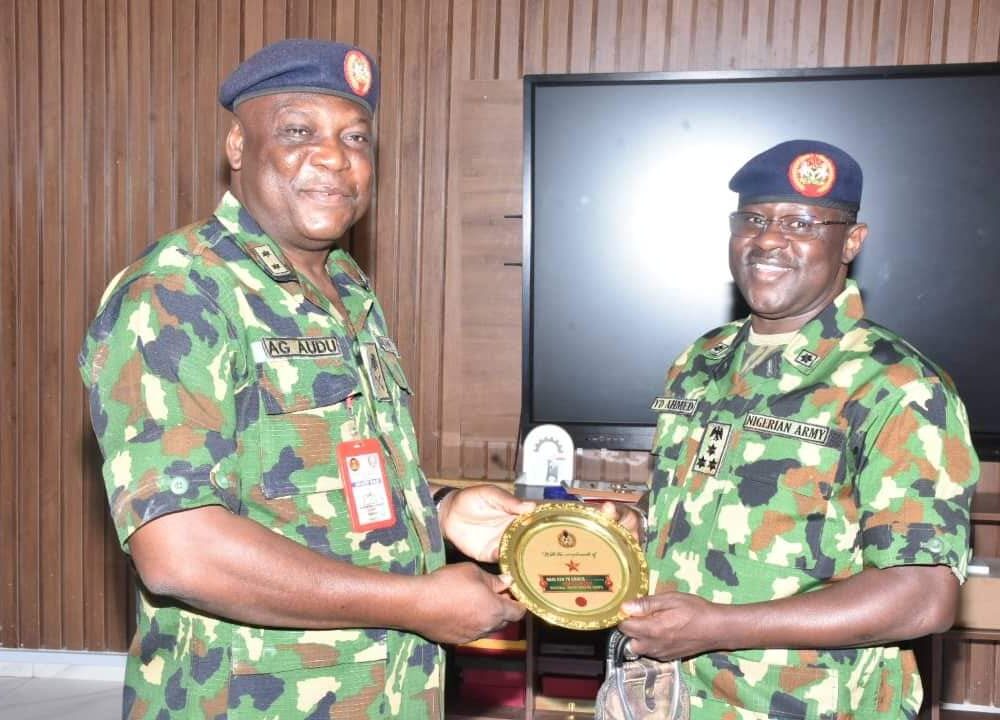Read the message dropped by late Professor Samuel Kolo Tswanya; the former DVC of IBBUL Lapai on Daily Trust of 2015.
It is on this note I strengthened that the VC of IBBUL Professor Adamu Kasim and Dr. Aliyu Busa has a hidden agenda not to allow Nupe Language to Trump to the limelight.
“Like many other Nigerian languages, Europeans have been at the forefront of documenting the Nupe language. For example, the first Nupe-English dictionary was written in 1912 by Reverend Banfield. Again, the same Reverend Banfield wrote a grammar of the Nupe language in 1914. The scholar also refers to a tradition which identifies a contribution by Samuel Ajayi Crowther “Sources said Samuel Ajayi Crowther wrote some hymn books in Lokoja in Nupe. But people don’t reckon so much with it, as it is a mixture of both Yoruba and Nupe.”
Next, he draws attention to the fact that Nupe does not feature on the syllabi of Nigerian universities and colleges of education “Nupe is not being studied in any Nigerian university, or college of education. It is not. ITS THERE ON PAPER THAT NUPE SHOULD BE TAUGHT, BUT I CAN TELL YOU THAT NO SCHOOL is teaching it. The college of education and the new state university of education here in Minna, have it as a course only on paper. But I don’t see it working. Who are those to teach it, and to provide materials?”
He adds that scholars are not investigating Nupe, and that the level of research today within Nigeria is very low. According to him the study of Nupe is flourishing abroad “It is being studied in Europe. There is more research on Nupe in the western world, and this is because of the richness of the grammar that they have identified. One person who has such great interest in the language is Professor N.V Smith of the University of London, who got a PhD in the language in 1961, he says.
He sheds more light on the work by N.V Smith “He was the first to tell us of the peculiar nature of Nupe grammar, especially the verb and the use of repetition in Nupe which European intellectuals found very interesting. Before then there were other studies on Nupe but not written in Nupe, for instance there was Nadel’s Black Byzantium. Nadel was an anthropologist, and he wrote about the anthropology of Nupe.”
In the USA Nupe is studied also because of “the nature of the pronouns in the language. The scholars understand that the adjectives in Nupe are post modifiers, whereas in English we have pre modifiers. So, they are very interested in how this works in the language.”
Professor Tswanya posits that Nupe is a threatened language “It is a threatened language. Last year the Nupe Language Committee was inaugurated by the Etsu Nupe Yahaya Abubakar. I was made chairman of the committee. We have a lot of manuscripts to develop, but the support is not there. People prefer to receive individuals who come with proposals on politics, than to hear one saying that he has a manuscript, or that he wants to write a Nupe grammar. They won’t listen to that. When the Europeans come, they come with support from Rockefeller or other foundations, to study the Nupe language or other languages in the country. But here one cannot go to the scholarship board, and say I need support for a research project on Nupe. One cannot even go to the TetFund.”
He explains further on the work of committee “But the language is declining even though we are trying to sensitise people. The Etsu Nupe realised that the language is dying, and he recognised that those who can resuscitate it are still very few. So some of us were called into it. We have some manuscripts, but we need support. If we can publish these, it will go a long way in saving the language. Solomon Yisa’s dictionary was published by the committee. His problem is that he is not a linguist. But his is a very good effort. While the rest of us could not write, he has done it.”
He says that generally most Nupe see their language as a “remote, primordial language, and one which is not yet developed. For socio political reasons, it is not brought into the limelight, if not, in Niger State we are the majority group.”
On some of the strengths of the language today, he adds that Nupe is spoken in its “clear, unadulterated form in communities outside Bida” and argues “that code switching and code mixing is very common in Nupe towns, and people cannot do without it when speaking.”
But whats the way forward? Professor Tswanya argues “The way forward is captured in the national policy on education, which states that every school in Nigeria has to teach a language of the immediate community. Higher institutions are also free to offer degrees in local languages. In the college of education, they have it on paper that they should teach Nupe, but they say that the enrolment is poor. But who are those to teach it? That is the major problem. Before you develop interest in teaching anything, you must also know it. But the teachers are not forthcoming. Then with the decline in funds being allocated to institutions, I don’t think government will want to put any money into the department of languages.”
In saving the Nupe language, a great role can be played by public spirited individuals, says Samuel Tswanya “The owners of Nupe can develop the language. There are public spirited individuals who are rich and who naturally support such causes. That is how it is done in developed societies. There they can’t wait for the government, but here those who have the will don’t have the means, and these are two different things.”
He adds that in less than 50 years the language will vanish, as well as many other languages in Nigeria, if efforts are not made to save them, saying that just half of the population of the Nupe speak an unadulterated form of the language. Then he opines “Unless we develop our own languages, even the technology we are talking about will continue to go down. For instance, you have a child who does not understand his own language, and then he starts learning English. It doesn’t work that way. There must be primary socialization. In other words your own language must be known to you. Then other things will follow and the country will develop.”
SHARED by:
Adamu Idris Manarakis niw,
Nupe Language Professor Honourary,
Tashiru Nupe & Founder / Director ILLEC,
17th October, 2023.





